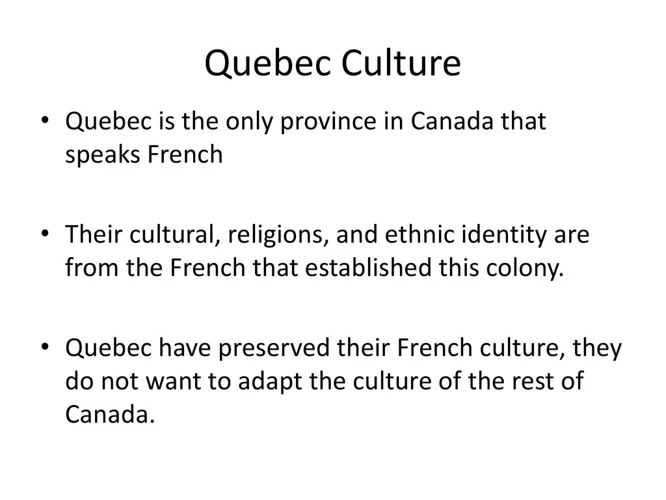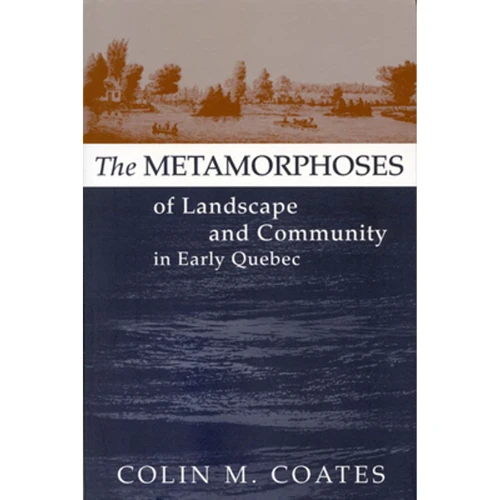At the heart of Canada’s Francophone presence lies Quebec, a province distinguished by its resilient and vibrant culture. The Quebec culture is a rich tapestry woven from a variety of historical, linguistic, and social threads. These threads bind the people together, creating an unmistakable cultural identity in Quebec that persists through the changing tides of time and politics. This post delves into the essence of this bonding agent, exploring how history, language, values, and traditions contribute to the province’s unique character.
Quebec History and Francophone Roots
The story of Quebec history is foundational to understanding its culture. From the arrival of French settlers in the 17th century to the pivotal battles that shaped North America, Quebec has always been at the crossroads of colonial interests and indigenous cultures. The struggle to maintain its Francophone identity has been constant, against the backdrop of British conquest and Canadian federalism, fostering a strong sense of resilience among its people.
French Canadian Heritage: A Pillar of Identity
French Canadian heritage stands as a beacon of pride for Quebecers. It encompasses language, but also a unique set of customs, folklore, and an approach to life that’s distinct from their Anglophone counterparts. From poutine to the music of the legendary Félix Leclerc, the province’s heritage is a daily celebration of its French roots, yet distinctively North American in its evolution.
Religion and Traditions: The Catholic Influence
Historically, the Catholic Church played a pivotal role in Quebec’s social and cultural development. Religious festivals and traditions, such as Saint-Jean-Baptiste Day, are still widely celebrated. While secularism has grown, the legacy of the Church remains evident in the province’s architecture, holidays, and community gatherings, acting as a reminder of the shared past.
The Language of Quebec: A Symbol of Cultural Identity
The French language is more than a means of communication in Quebec — it is the lifeblood of its society, a defiant symbol of cultural identity in Quebec. Through the rhythm of its dialect and the poetry of its expressions, Quebecois French carries with it the history and heart of its people, setting Quebec apart not only from the rest of Canada but also distinguishing it within the Francophone world.
French in Quebec: More Than Just a Language
For Quebecers, French is a declaration of identity, a way of life that permeates every facet of their society. It’s seen in the signage, heard in the passionate debates in the National Assembly, and felt in the warm greetings exchanged on the streets of Quebec City and Montreal.
Quebecois Traditions and the French Connection
Quebecois traditions, from the hearty tourtière to the raucous celebrations of Carnaval, are imbued with the spirit of France yet have taken on a New World identity. These customs serve not only as entertainment but as reminders of the province’s enduring link to its French ancestors.
Linguistic Policies Upholding Quebec’s Francophone Culture
Legislation like Bill 101 underscores the province’s commitment to protecting its Francophone culture in Canada. These policies aim to preserve the French language’s predominance, ensuring that Quebecers can live and work in their mother tongue, thus cementing the language as a cornerstone of their cultural unity.
Quebec Social Cohesion: From Past to Present
The strong fabric of Quebec social cohesion is testament to the province’s collective spirit. From rural townships to urban neighborhoods, the sense of belonging and community is palpable. This cohesion is a product of shared experiences, mutual respect for the province’s history, and a common vision for its future.
Quebecois Traditions: Cementing Social Bonds
The annual cycles of maple syrup production, ice fishing, and sugar shack gatherings are more than leisure activities; they’re rituals that reinforce social bonds. These Quebecois traditions act as social glue, uniting generations and neighborhoods in shared experiences that are quintessentially Quebecois.
Quebec Nationalism: A Quest for Cultural Preservation
Quebec nationalism is a complex and passionate movement that has ebbed and flowed throughout the province’s history. At its core, it represents an aspiration to safeguard Quebec’s unique cultural footprint within the broader Canadian mosaic, and in some instances, has fueled desires for increased autonomy or even sovereignty.
Quebec Societal Values: A Unique Blend
Embracing values such as secularism, environmental stewardship, and linguistic pride, Quebec societal values are indicative of a society that cherishes its past while boldly confronting the future. These values are a reflection of a progressive, distinct society within North America.
Cultural Unity in Quebec: The Role of Quebec Nationalism
The drive for cultural unity in Quebec has long been associated with Quebec nationalism. It’s a force that has rallied the province’s inhabitants around the French language and a shared historical narrative, creating an unbreakable bond that has withstood political and social challenges over the centuries.
The Impact of Quebec Nationalism on Cultural Identity
Nationalism has significantly shaped Quebec’s cultural landscape, influencing everything from media to education. It has acted as a guardian of the province’s identity, ensuring that the Quebecois voice is heard and respected on the national stage.
Cultural Unity vs. Multiculturalism: The Quebecois Perspective
In Quebec, the concept of cultural unity often coexists with a broader Canadian ethos of multiculturalism. The Quebecois perspective on this relationship is nuanced, advocating for the protection of their unique culture while also contributing to Canada’s rich diversity.
Challenges and Evolution of Cultural Identity in Quebec
As the world becomes more interconnected, Quebec’s cultural identity faces new challenges. The preservation of the province’s Francophone traditions amidst global influences, and the integration of immigrants into the fabric of Quebec society, are current issues that are reshaping Quebec’s identity.
Global Influences and the Defense of Francophone Culture in Canada
Globalization brings with it a deluge of cultural influences that can both enrich and dilute local cultures. In Quebec, there’s a concerted effort to defend Francophone culture in Canada against the tide of Anglicization, while also embracing the positive aspects of global connectivity.
Immigration and the Shaping of Modern Quebec Identity
Immigration has introduced new threads to the tapestry of Quebec society. The incorporation of diverse cultural practices and perspectives into Quebec life is a testament to the province’s evolving identity and its capacity for inclusivity.
Quebec in the Context of Canadian Diversity
Quebec’s identity must be understood within the larger context of Canadian diversity. The province’s distinctiveness enhances the national narrative, showcasing how regional identities can thrive within a unified country.
Celebrating Quebecois Traditions and Heritage
Quebec’s calendar is dotted with festivals and events that celebrate its rich heritage. These gatherings are not merely entertainment; they serve to reinforce the province’s cultural legacy and ensure its transmission to future generations.
Festivals and Cultural Events: The Fabric of Quebec Life
Festivals like the Montreal International Jazz Festival and Quebec City’s Winter Carnival are iconic events that attract visitors from around the world. They are showcases of the province’s creativity, hospitality, and enduring customs.
Hockey in Quebec: More than a Sport, a Tradition
Hockey is not just a sport in Quebec; it’s akin to a religion. Teams like the Montreal Canadiens are not just athletic clubs; they are cultural institutions that inspire loyalty and passion across all segments of Quebec society.
Conclusion: The Future of Cultural Identity in Quebec
The pursuit of preserving Quebec’s cultural identity is ongoing. As the province navigates the complexities of a globalized world, it continues to find innovative ways to maintain its unique character while being open to the evolving dynamics of a diverse population.
Upholding Quebec’s Cultural Glue in a Globalized World
Quebec will persist in upholding the cultural glue that binds its society together, ensuring that its language, traditions, and values are not only protected but celebrated and expanded in the face of global pressures.
When exploring the cohesive forces within societies, particularly with reference to Quebec’s vibrant culture, it’s essential to understand the concept of “cultural glue.” To delve deeper into this metaphorical substance, take a moment to read our article on what is the glue that keeps an organization together, which can provide insights into the social adhesives that bind communities beyond geographical boundaries.
For those curious about the literal side of adhesion, we also have intriguing pieces on what rugby glue is made of — a product known for its strong bonding properties in the sports world — and an article discussing the world’s strongest glue. Though these articles discuss physical adhesives, the underlying principles of cohesion and durability can offer a unique perspective on the cultural ties that hold Quebec’s society together.
Promoting Unity While Embracing Diversity
In conclusion, Quebec demonstrates that it is possible to promote unity while embracing diversity. The province’s commitment to its French Canadian roots, combined with an openness to new influences, provides a roadmap for other cultures seeking to balance tradition with progress.


